April 9, 2022
9 April 2022
Today on the podcast I'm joined by two guests, Jay Feldman and Mike Fave, to discuss and debunk many juicy “myths” circulating out in the health and fitness worlds today.
Jay Feldman is a health coach, independent health researcher, and the host of The Energy Balance Podcast. He has degrees in neuroscience and exercise physiology from the University of Miami and decided to forgo medical school after realizing that the conventional medical approach was not the solution to the health problems that so many of us face. After working through various conventional and alternative health paradigms and trialing countless diets (including everything from vegetarian to keto), Jay came across the idea that cellular energy is the foundation of our health. He now uses a bioenergetic approach to help men and women around the world maximize their cellular energy and achieve freedom from low-energy symptoms like chronic hunger & cravings, fatigue, brain fog, poor sleep, gut issues, and weight gain.
Jay is also joined by Mike Fave, an independent researcher and a Registered Nurse. While educated in conventional medicine as an RN, Mike spent close to a decade with his head inside a Pubmed article or a physiology textbook, and his heart in some type of nutrition or supplement experiment. At the beginning of his journey, Mike damaged his health by getting caught up in dietary dogma and nutrition ideology. He went the western medical route to try to fix the damage and wound up getting talked into a surgery he didn’t need. It’s taken him years to recover, but he doesn't regret it because he learned significantly from his mistakes. He saw all sides of the spectrum from being a patient to being a practitioner to being a part of the alternative health scene. He takes his lessons, experiences, and knowledge to help others not only avoid the mistakes he made, but help them rebuild their health without dogma, ideology, or authoritarianism.
During our discussion, you'll discover:
-The history of the bioenergetic model of health…06:38
- Dr. Ray Peat
- Generative Energy Podcast with Danny Roddy
- Dr. Ray Peat on One Radio Network
- The conventional medicine route wasn't working for them
- In-depth in physiology, cells, mitochondria
- Flow of energy drives biological function
- Opposes the “hormetic view” of health
- Energy is at the forefront
- Restricting energy flow has a deleterious effect on our health
- When you create stress in the short term, you get a short term burst of energy production and expenditure to deal with that stress; in the long term that comes at a cost to the flow of energy
- Hans Selye
-How Jay and Mike reconcile the dichotomy between their view and the traditional view of a hormetic approach to health…23:40
- There's a difference between substrate and energy production
- Ensure substrate is being converted into ATP
- Rate of living theory: the more energy we expend, the faster we age (scarcity mindset)
- There are better ways to create the positive effects of hormesis without the stress-induced on the body
-Why the traditional hormetic model is incorrect…26:08
- A conceptual shift in how the benefits of hormesis are perceived
- Understand the correct definition of hormesis
- “What doesn't kill you…can eventually kill you.”
-What causes energy access that leads to chronic disease…29:40
- Certain foods inhibit energy production in the body
- Excess substrate is not being converted into energy; instead is being converted into body fat
-What Jay and Mike's model looks like in the real world…34:42
- Whole food diet
- Carbs consistently throughout the day; sweet potatoes, tubers, etc.
- The Quick and the Dead by Pavel Tsatsouline
- HIRT vs. HIIT
- Focus on recovery, building muscle tension, not damage
- Brad Schoenfeld
-Clarity on what Jay and Mike's model does NOT mean…39:07
- Sleep 8-9 hours, then eat breakfast
- Podcast with Dr. Satchin Panda:
- Higher metabolic rates = longer lifespan
- Purpose of fat oxidation:
- In a starvation state, lots of Reactive Oxygen Species (ROS) are created and meant to signal the slowing of respiration in order to survive for a longer period of time; ROS is the bottleneck
- Moderation of mitochondrial respiration mitigates metabolic syndrome of aging
- When producing a lot of ATP, the ATP is the bottleneck, which leads to increased ROS
- Dried goji berries, juice, red meat with cooked vegetables and butter is a typical meal
- Get enough nutrients to optimize function
- Sunlight, grounding
- Pay close attention to reducing as much stress as possible
- Stress is not just stimulating the body but creating a stress response, depleting energy and increasing stress hormones
- Stress is cumulative
- Optimize the athlete to get the most out of their training as possible
- Persistent stress that leads to exhaustion will not lead to optimal results
-Better ways to get the benefits of hormesis without the stress of hormesis…59:40
- Caloric restriction
- Studies:
- Cold thermogenesis is a generic stressor (in Jay and Mike's view) with unseen negative effects on the body
- There is only so much energy to expend throughout the day; the body can only produce so much energy at a given time
- Intermittent vs. long-term fasting
- Pay attention to all stressors you are putting on your body throughout the day
- The stress is a trade-off for how you feel keeping the endgame in mind
- How to Live by Derek Sivers
-And much more…
Upcoming Events:
- PaleoFX (April 29 -May 1, 2022).
- RUNGA – The Gathering (May 12-14, 2022). Register for the event now by clicking here
- Health Optimization Summit! Use code BEN for 20% off (May 22-29, 2022)
- Keep up on Ben's LIVE appearances by following bengreenfieldlife.com/calendar
Click here for the full written transcript of this podcast episode.
Resources from this episode:
– Jay Feldman:
– Podcasts And Articles:
- The Secrets Of Hugh Jackman’s Wolverine Diet, Does A Morning Cup Of Coffee “Break Your Fast”, The Circadian Clock & Much More!
- My New #1 Hack For Zapping Inflammation, Increasing Deep Sleep & Recovering Faster – Earthing (The Most Important Health Discovery Ever?)
- How You Can Use Cold Thermogenesis To Perform Like Lance Armstrong And Michael Phelps
- Sunlight Makes You Skinny & Blue Light Makes You Fat: 11 Ways To Biohack Light To Optimize Your Body & Brain.
- The Complete Guide To Interval Training
- The Latest Research On Fasting: What 9 New Studies Say About Fasting’s Effects On Fat Loss, Satiety, Insulin Resistance, & More.
– Books:
- The Quick and the Dead by Pavel Tsatsouline
- How to Live by Derek Sivers
– Other Resources:
- Dr. Ray Peat
- Danny Roddy's Generative Energy Podcast
- Dr. Ray Peat on One Radio Network
- Hans Selye
- Brad Schoenfeld
- Science And Development Of Muscle Hypertrophy By Brad Schoenfeld
- Moderation Of Mitochondrial Respiration Mitigates Metabolic Syndrome Of Aging
- Hormesis Part 1: Does Stress Make You Stronger?
- Hormesis Part 2: Flawed Research And Harmful Misapplications (Including Ketogenic Diets, Intermittent Fasting, Calorie Restriction, And More)
- Regulation Of Longevity And Oxidative Stress By Nutritional Interventions: Role Of Methionine Restriction
- Glycine Supplementation Extends Lifespan Of Male And Female Mice
- Life-Span Extension In Mice By Preweaning Food Restriction And By Methionine Restriction in Middle Age
- Goji berries
- US Wellness Meats
https://jayfeldmanwellness.com/hormesis-part-1-does-stress-make-you-stronger/
https://jayfeldmanwellness.com/hormesis-part-2-flawed-research-and-harmful-misapplications-including-ketogenic-diets-intermittent-fasting-calorie-restriction-and-more/
Episode sponsors:
–Lucy Nicotine Gum: If you are looking for a cleaner and tastier alternative to other nicotine products, then this product is for you. The gum comes in three flavors – Wintergreen, Cinnamon, and Pomegranate – and the lozenges in cherry ice. To save 20% on any order, just use discount code BEN20.
–Magnesium Breakthrough: Top 7 forms of magnesium for stress and better sleep, ALL IN 1 BOTTLE. Get a 10% discount when you use my link
–Endure: My new book, Endure, is now available!
–Dry Farm Wines: Dry Farm Wines is offering an extra bottle in your first box for a penny (because it’s alcohol, it can’t be free).
–Kion Sleep: Contains only natural ingredients with long clinical research history behind them that are safe to take every night. There’s no grogginess: You’ll wake up feeling refreshed, recovered, and energized!
Do you have questions, thoughts, or feedback for Jay Feldman or me? Leave your comments below and one of us will reply!


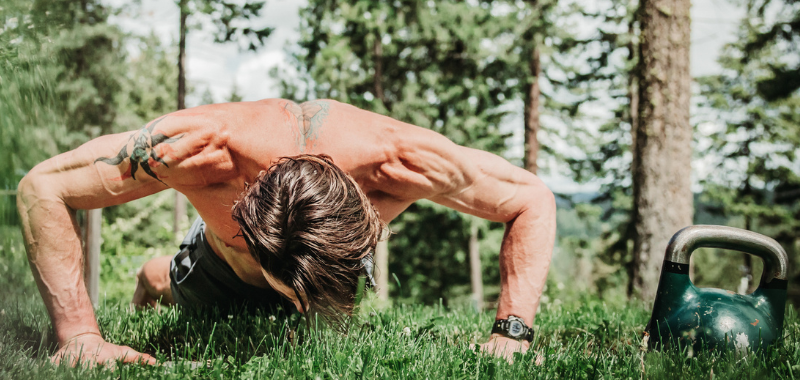
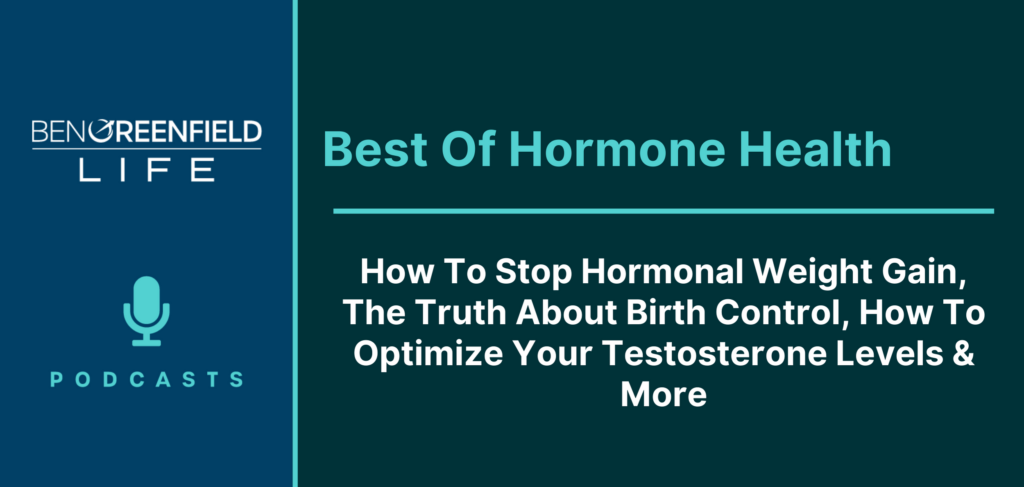
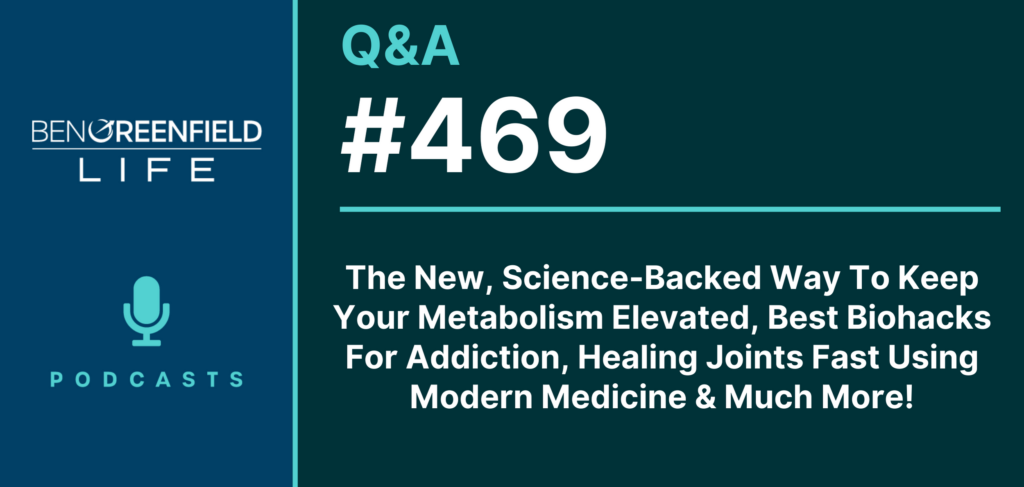

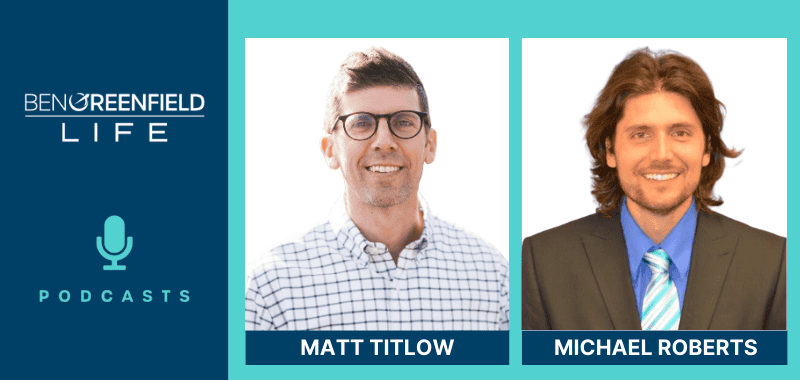
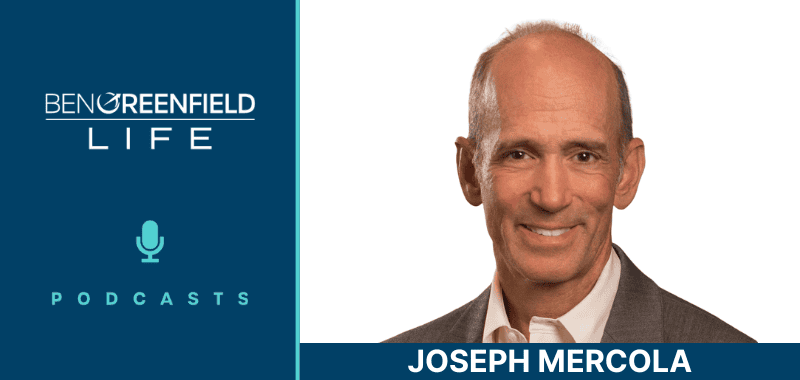




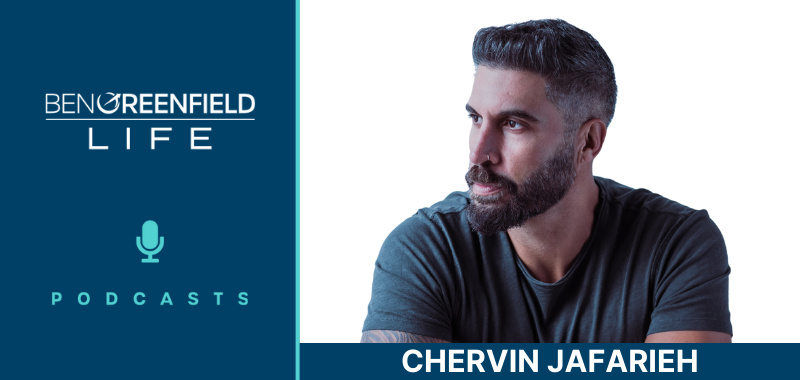

I agree been! You aren’t aging well. I honestly follow you to extend my life and have followed you for some time. You, honestly, are aging like my dad who does zero workouts, eats fried food, and drinks daily.
Damn, I was thinking the same thing. Ben looks old. The stem cell and other thousand dollar treatments are apparently shit! Good to know.
Hi! First time commenter, very long time listener here from Finland. This was absolutely a phenomenal podcast episode and even though I hadn’t heard of these guys and Dr. Ray Peat before, I must say that this stuff made a lot of sense. The hormesis case was entirely new to me, as I – like probably many here – always thought that hormesis is the way to go when enhancing health.
I must say that Jay’s and Mike’s statements remind me A LOT of Dr. Jack Kruse’s work, where the main point is that “if the battery is depleted, there is no more to draw from”. He of course focuses on the “engine” mostly and fuel comes way later. There are deficits to his methods IMO (exercise/movement priority is almost on the bottom), but the main argument is the same I think: you can’t and shouldn’t stress a body that does not have the energy to provide for the compensation/repair.
In my case, I have done keto+extreme exercise (tanking my libido etc but thank god not doing any further damage) and all the jazz. What I have had success with, was IMF (8/16) but what I noticed is that my weight didn’t go down very much even though I felt good and body was lean. And one thing I noticed and was wondering for years, is when on the weekends I would drive to our summer cottage (a Finnish thing) with my family and would, out of hospitality, eat breakfast and way more carbs that I regularly do. Even from grains, think about that! Although some water retention happened, I felt strong and my libido went so high it wasn’t even funny anymore! This happened on many occasions, and sometimes I noticed that even though I ate more in these trips, body composition didn’t go down and I had good energy overall. Of course there is the stress thing, more outside air etc but this baffled me a lot.
I think internally I started to connect the dots for the mentioned occurrence, and now listening to this strengthens my “hypothesis” of just not providing my body enough energy on a regular basis, and more driving the fasting-cortisol train.
Nowadays I eat kind of circadian rhythm – Satchin Panda style, with a good breakfast and tapering food intake down as the day continues. By the way, one mistake Ben had when he mentioned Dr. Panda, is that he actually advices in his book to eat breakfast BECAUSE the cortisol is higher in the morning and the insulin response is better on the earlier part of the day, which he mentions that the reasons aren’t known yet, but he thinks it may have something to do with light. Because of these statements, I shifted my own eating schedule to an earlier one as I tended to get the bulk of my calories in the evening, which of course doesn’t work well with going to sleep.
Thank you Ben for keeping an open mind! I clearly see throughout the years your evolution, and I think this new update on your website is a good example of that :)
Best regards,
Aleksi
Seems fishy. If you have a surplus of energy substrate and it’s able to be processed efficiently, then I don’t know why it would be a problem.. Only compromising other internal systems if OVER-stressing, right?
Seems like we need to further define what stress is. Isn’t mechanically loading the muscles already considered a stressor?
You’re right, definition is part of the problem and often the terms (including “stress”) are misused.
Stress is the process that occurs in response to an energy deficit. The stressor is the agent that causes the stress. Any stimuli has both a stressor effect (which is the amount of energy it uses) and specific effects, which are all of the other effects it has. The stressor effect is generalized, where all stimuli have a stressor effect that is cumulative, whereas the specific effects are unique to each stimulus.
When it comes to exercise, the mechanical loading is a specific effect.
I explained this further in this article: https://jayfeldmanwellness.com/hormesis-part-1-does-stress-make-you-stronger/
Thanks Jay. That makes sense. So the main goal then should be to first have as much actual usable energy as possible.
And then, since all of these stressors have their own specific effect, & since the stress is cumulative, it shouldn’t really matter which things we are doing, whether heat exposure, cold exposure, exercise or a certain way of dieting. But as long as we don’t go over the energy supply creating that deficit, we should be okay. Would you agree?
I had been listening to Jay and Mikes podcast and just read Dr. Steven Gundrys book unlocking The Keto Code. It seems that you are hitting on some of the same science here in regards to nutrition, “uncoupling” mitochondria by eating polyphenols, Mct, and post-biotic fibers. I would love to hear more about this cellular process.
I agree Brian…I’ve read that book and listened to each podcast Gundry was on…looking for depth of knowledge and different interviews allow for more and more to be exposed. Ben…would love you to do a new podcast about this “cellular signaling”:)
Great podcast Ben! One of the things I appreciate about you is your openess to new ideas and thinking. As the great Michealango said ‘I am still learning’ and embracing that mindset, a beginner’s mindset, may be the healthiest behavior of all. Thanks for what you do!
Agree totally – this was running through my mind also.. it’s why it’s the one podcast I subscribe to and never miss an episode… Stands out in the crowd.
Heard a bit about diet, but maybe I missed some exercise examples for bang-for-your-longevity-buck? What are you fellas doing these days, and is Ben gonna drink a bit of your cool aid?? Ha! Thanks guys
I think the most important piece for exercise is not to do it with the focus of “burning calories” or “driving stress” or a “no pain no gain” mindset. As long as we’re moving regularly that makes the biggest difference. And I’d also generally lean away from large amounts of endurance training due to the stress it causes relative to its benefits. When it comes specifically to hypertrophy and resistance training, I’d also lean away from techniques that increase stress and damage, like using eccentric-based training.
We just discussed exercise further on a recent series of our podcast: https://jayfeldmanwellness.com/ep-80-how-much-exercise-is-too-much-from-the-bioenergetic-view-fitness-vs-health-part-1/
And I’m not sure if Ben will but I hope he does!
This really makes sense as an older dude (57).
Hmm…sounds like this bioenergetic model is a reminder to figure out what works for you…and if we start from a place of depletion…all the hormesis will further deteriorate our “energy”. And it’s a reminder not to combine extreme measures…to mitigate excess “measures” (diet, movement, cold/hot therapy) and living in the middle ground. Basically assessing if the benefits outweigh the “risks”…pretty much what we all “need” to “do”…knowing your endpoint and head in that direction in the most supportive (as opposed to destructive) way possible for you. Ben, your intention was fulfilled…as you mention at the end. Good, balanced discussion…and yes, as you age things change (get old) as you mentioned as well…life sorta “forces” you to get more gentle with yourself as a gift to yourself…not as a way to “take the easy road”…mostly because it becomes more aligned with how you think as you age…
“Get more gentle with yourself “, Well said.